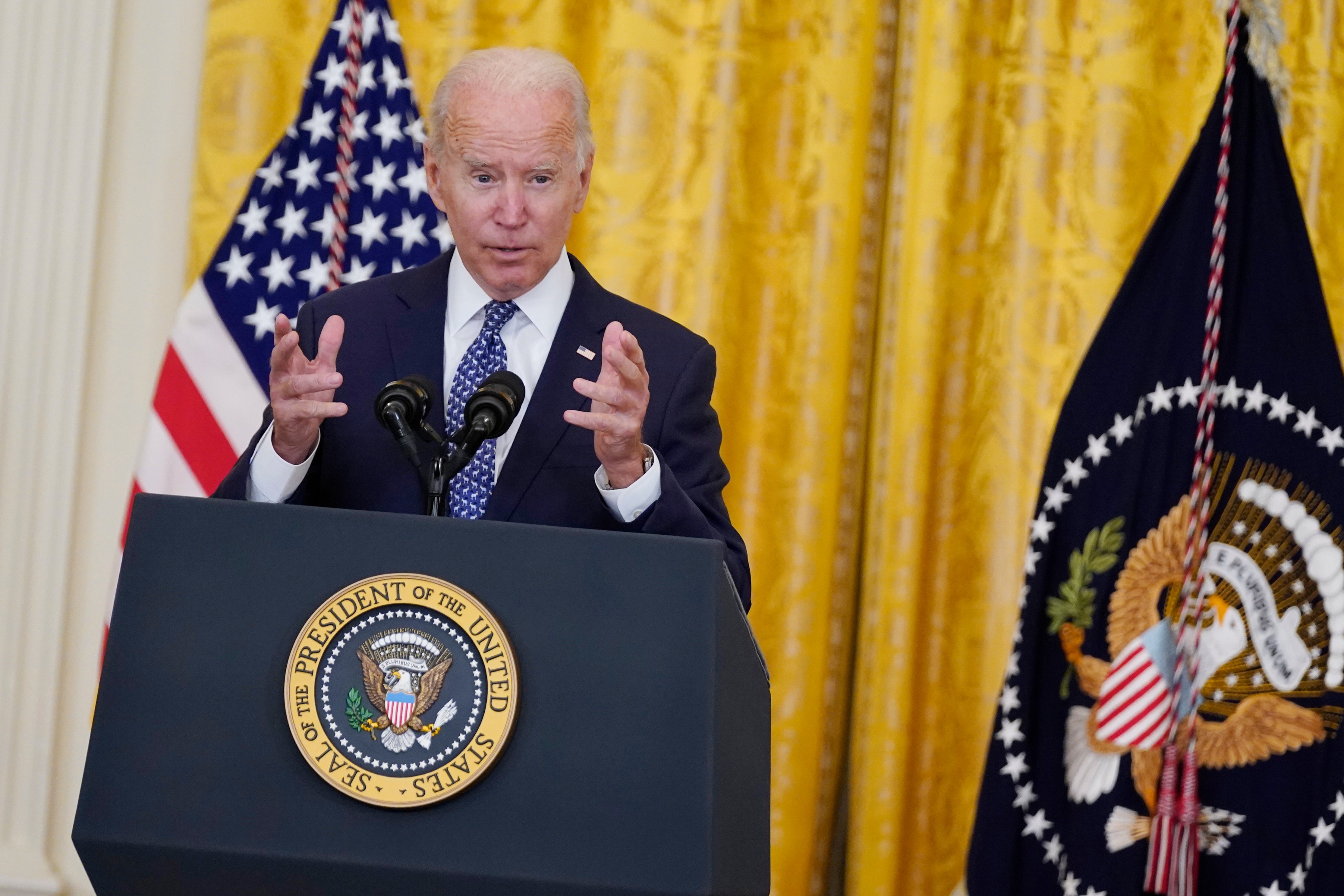AP FACT CHECK: Biden overstates UAW support of electric cars
President Joe Biden is glossing over important details and oversimplifying the facts when it comes to United Auto Workers' support for his effort to dramatically boost U.S. production of electric vehicles

Your support helps us to tell the story
From reproductive rights to climate change to Big Tech, The Independent is on the ground when the story is developing. Whether it's investigating the financials of Elon Musk's pro-Trump PAC or producing our latest documentary, 'The A Word', which shines a light on the American women fighting for reproductive rights, we know how important it is to parse out the facts from the messaging.
At such a critical moment in US history, we need reporters on the ground. Your donation allows us to keep sending journalists to speak to both sides of the story.
The Independent is trusted by Americans across the entire political spectrum. And unlike many other quality news outlets, we choose not to lock Americans out of our reporting and analysis with paywalls. We believe quality journalism should be available to everyone, paid for by those who can afford it.
Your support makes all the difference.President Joe Biden glossed over important details and oversimplified the facts in his boast about support from the United Auto Workers union for his effort to dramatically increase sales of electric vehicles by decade's end.
In his remarks Wednesday, Biden failed to say that UAW did not endorse the EV targets he set in an executive order signed last month. The union's support is also dependent in part on robust government support for union-made cars in the form of tax credits in legislation pending in Congress — something that is far from guaranteed to happen.
A look at the claim:
BIDEN, praising the work of UAW members: “The main ‘Big Three’ (automakers) have decided along with the support of those unions on building, going electric, so we own that market.”
THE FACTS: Not exactly. While UAW has expressed general support for more EV sales, it has repeatedly declined to back goals urged by Biden as part of his ambitious plan to combat climate change, including the 40% to 50% target agreed to by the largest automakers.
Biden last month announced his plan to “own” the EV market over foreign competitors, signing an order setting a goal that half of all new vehicles sold in 2030 will be zero-emissions vehicles, which environmental groups say is needed to significantly reduce greenhouse gas emissions. That would be a seismic shift in the U.S. from internal combustion engines to battery-powered vehicles.
Transportation is the single biggest U.S. contributor to climate change.
The United Auto Workers union, in fact, has voiced concerns about being too hasty with an EV transition because of the potential impact on industry jobs. Since electric vehicles generally have 30% to 40% fewer parts and are simpler to build, fewer workers will be needed to assemble them. That will likely mean a reshuffling of jobs, as workers who once made engines, transmissions and other components for gas-powered cars have to switch to electric motors and batteries.
At the signing of Biden’s order, UAW did not endorse a target, pointedly saying it stands behind the president to ”support his ambition not just to grow electric vehicles but also our capacity to produce them domestically with good wages and benefits.”
Both UAW and the “Big Three" automakers — Ford General Motors and Stellantis, formerly Fiat Chrysler — have made clear that a “dramatic shift” can only happen with incentives for electric vehicle purchases, adequate government funding for charging stations and money to expand electric vehicle manufacturing and the parts supply chain.
In a bipartisan infrastructure bill awaiting congressional passage, there is $7.5 billion for grants to build charging stations, about half of what Biden originally proposed. He also had wanted $100 billion for tax credits and rebates to entice people into buying electric vehicles. At least some of that money was expected to be incorporated in a $3.5 trillion spending bill that is facing resistance in Congress.
___
Krisher is an Associated Press auto writer.
___
EDITOR'S NOTE — A look at the veracity of claims by political figures.
___
Find AP Fact Checks at http://apnews.com/APFactCheck
Follow @APFactCheck on Twitter: https://twitter.com/APFactCheck